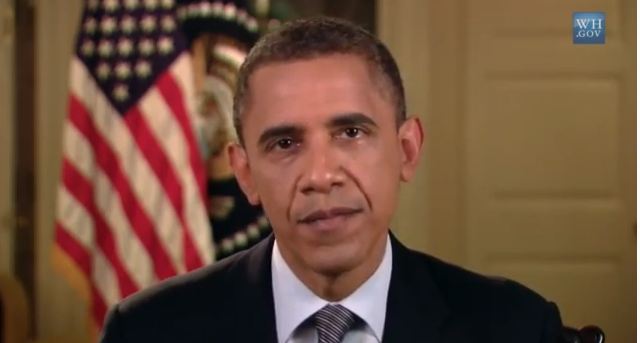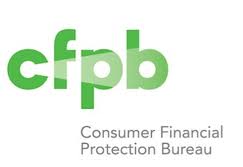Election Day is next Tuesday and it is also an opportunity to learn more about the Consumer Financial Protection Bureau’s plans to regulate attorneys and small businesses. Join me at 11:30 am ET along with Alan Kaplinsky, Chris Willis and John Culhane of Ballard Spahr for this webinar on the Larger Participant Rule issued by the Consumer Financial Protection Bureau last week. I’ll be discussing the CFPB’s plan to regulate even small businesses and law firms it deems as “service providers.” Ballard Spahr publishes the cfpbmonitor.com which is a must read for anyone connected to the consumer financial services industry. This…
In his October 27, 2012 weekly address to the Nation, President Obama praised recent efforts of the Consumer Financial Protection Bureau. Among the highlights: “[The CFPB’s] only mission is to fight for you.” “[The CFPB] recently ordered three big credit card companies to return more than $400 million dollars to folks who were deceived or mislead . . . that’s what Wall Street Reform is all about . . .” “[Republicans in Congress] backed by an army of financial industry lobbyists, they’ve been waging an all out battle to delay, defund and dismantle these new rules.” ” . . .the true engine of job creation in this country is the private sector —…
Last night, the Consumer Financial Protection Bureau (CFPB) released its Larger Non-Bank Participant Rule. The Rule is available here. In addition to releasing the Rule, the CFPB released an examination manual and a fact sheet. Some highlights: The Rule is effective January 2, 2013 — 70 days from today. The Rule provides a description of the examination process. It does not apply to entities that originate credit. A person is subject to the Rule if they have more than $10 million in “annual receipts” resulting from consumer debt collection. “Annual receipts” is derived from a three-year average of receipts. “Annual receipts” does not include “those receipts that…
As Fall brings a chill to early morning weather, a string of federal agency enforcement actions are supplying a lot of unwanted heat for the consumer financial services industry. Today, the Federal Trade Commission announced that it has entered into a Consent Order with Equifax Information Services LLC, over charges that it had allegedly improperly sold lists of consumers who were late on their mortgage payments. The Consent Order requires Equifax to pay nearly $393,000 to the FTC. In a separate action, an Equifax customer will pay the FTC civil penalties of $1.2 million under a Consent Order concerning its alleged use of the same lists…
A City of New York regulation that sought to regulate attorneys who practiced debt collection law, was struck down Wednesday by a Federal Court sitting in the Eastern District of New York because it violated New York’s Constitutional separation of powers. In Eric Berman, P.C. v. City of New York the court found that New York City had exceeded its authority under New York law by enacting a regulation which dictated how licensed New York attorneys may provided debt collection legal services. The regulation attempted to distinguish attorneys who regularly send debt collection letters — what it described as attorneys who “regularly…
While the use of form pleadings is not unusual, it becomes dicey when attorneys seek fees from their use of forms as “original work.” But when you use a fee petition that itself is a form pleading and claim it too is “original work,” you are going to draw the ire of several federal district court judges in the Third Circuit. Yesterday, one plaintiff’s firm was front and center for a lesson on the use and abuse of form pleadings, drawing an admonishment from a Federal Judge sitting in the Eastern District of Pennsylvania that “it may not continue with…
When a law firm uses its letterhead to collect debt for its client, it “cannot disclaim the fact that he or she is engaging in the practice of law when using law firm letterhead,” states a recent joint opinion by the New Jersey Committee on the Unauthorized Practice of Law and the Advisory Committee on Professional Ethics. 1 Rejects Lawyers’ Use of Greco Disclaimers The Opinion directly contradicts the Second Circuit Court of Appeals’ decision in Greco v. Trauner, Cohen & Thomas, LLP.2 In Greco, the court explained that: attorneys can participate in debt collection in any number of ways,…
Prelude: In 2010, the Federal Trade Commission released a study entitled “Repairing A Broken System: Protecting Consumers in Debt Collection Litigation and Arbitration.” What follows is part two of a report on their latest repair efforts. In a February blog post, I explored the Federal Trade Commission’s press release equating a potential defense (the expiration of a limitations period) with a legal right. I’m headed back to that same press release to consider another questionable call from the FTC’s efforts to “repair a broken system.” So today, here is Chapter Two: “How to Confuse People Into Believing You Are Furnishing Negative Credit Information Concerning Them.”…
As reported today in the Consumer Law and Policy Blog, University of Utah Law Professor Christopher L. Peterson joined the Consumer Financial Protection Bureau as a Senior Counsel for Enforcement Strategy. Although Professor Peterson and I do not see eye to eye on many issues, over the past decade his scholarly works have impacted consumer financial services law. If you ever have the opportunity to hear Chris speak on consumer financial services law, do so. You might not like what you hear, but he knows how to make his point in a way that captures your attention.
Sending verification in response to a consumer’s written demand for verification under 15 U.S.C. § 1692g, which also contains a cease and desist demand, does not violate § 1692c under a holding from the Western District of New York in Marino v. HoganWillig, PLLC, 11-cv-453 (W.D. NY April 24, 2012). The Court refused to read § 1692c(c) to prohibit sending a consumer § 1692g(b) validation because it would place a debt collector “into a frozen state where it could not seek to collect the debt because compliance with Section 1692g(b) would violate Section 1692c(c).” The court cited the unpublished opinion in Recker…
Chris Christie came into office on a promise to take the NJ Supreme Court off “its pedestal” and place it on a equal footing with the legislative and executive branches. The Star Ledger reports on the devisiveness that has permeated relations between NJ’s Governor and the Courts and its impact upon NJ’s legal system. You can read the article here.











